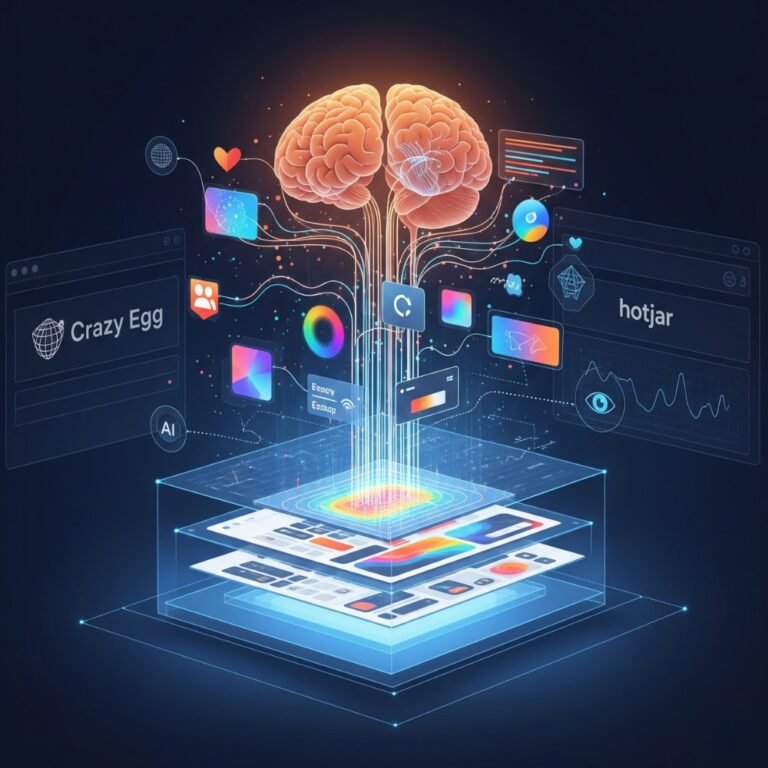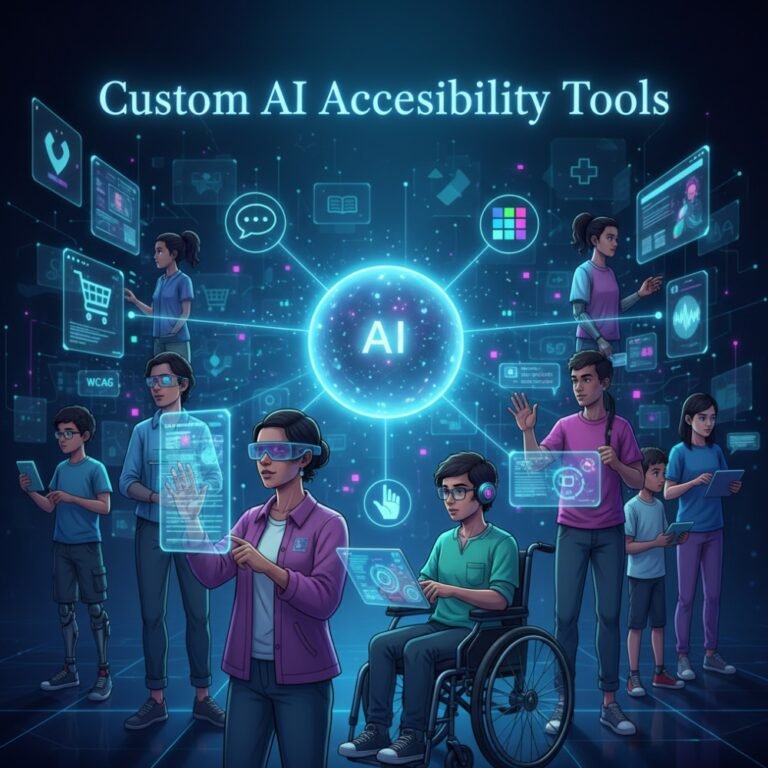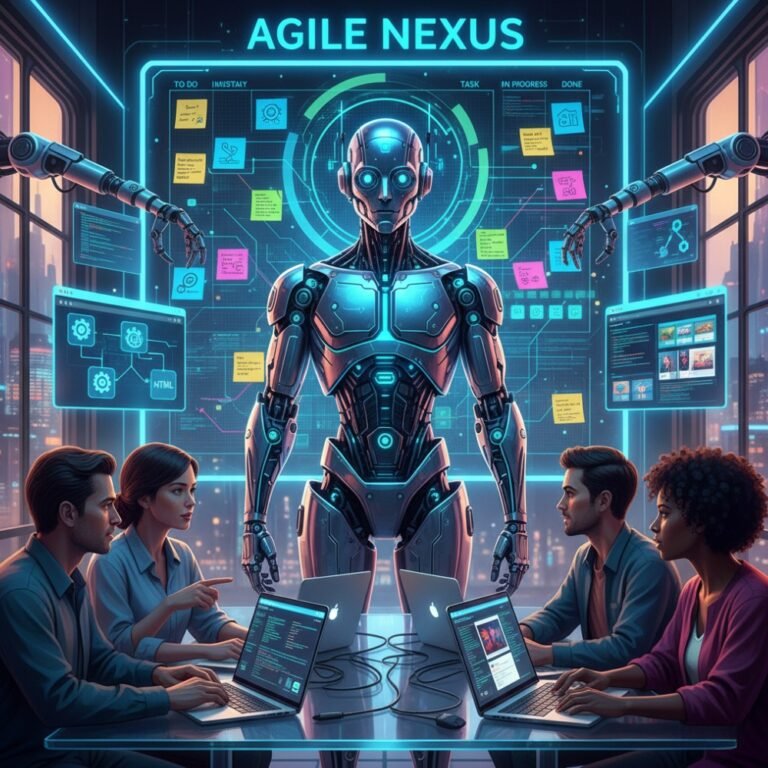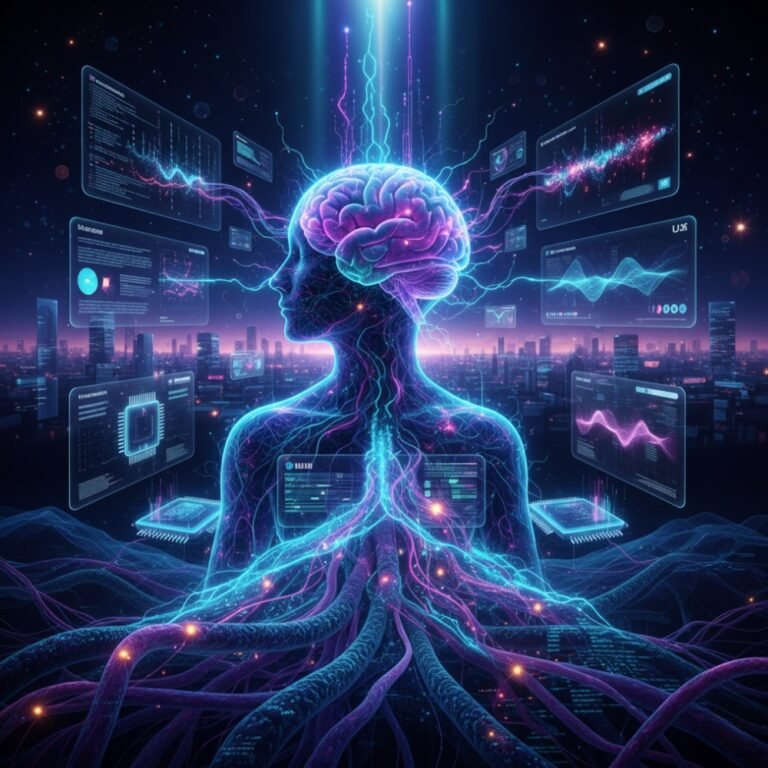Imagine a world where your website’s backend processes data at speeds that make today’s supercomputers look like abacuses. Where cracking unbreakable codes becomes child’s play, and personalising user experiences happens in the blink of an eye. That’s not science fiction—it’s the promise of quantum computing, and it’s already nudging its way into web development tools. As a web developer, you’ve tinkered with JavaScript frameworks and wrestled with database queries, but quantum tech could soon supercharge all that. In this article, we’ll dive into what quantum computing really means, how it’s shaking up web dev, and why you should pay attention now. Buckle up; the future’s looking quantum.
What is Quantum Computing?
Let’s start at the basics. Classical computing—the kind powering your laptop or server—relies on bits. These are simple: either a 0 or a 1. It’s like flipping a coin that always lands heads or tails. Quantum computing, though? It flips the script entirely.
At its core, quantum computing harnesses the weird and wonderful laws of quantum mechanics to perform calculations. Instead of bits, it uses qubits—quantum bits that can exist in multiple states at once. This isn’t just faster computing; it’s a whole new paradigm for solving problems that stump traditional machines.
Think about it: your current web app might chug through sorting massive datasets for user recommendations. A quantum system could explore countless possibilities simultaneously, spitting out optimised results before you’ve finished your coffee.
How It Differs from Classical Computing
Classical computers process tasks sequentially or in parallel through multiple cores, but they’re linear at heart. They crunch numbers one step at a time, bound by binary logic. Quantum computers, on the other hand, leverage quantum phenomena to tackle exponential complexity.
For web developers, this means shifting from predictable algorithms in languages like Python to probabilistic ones that embrace uncertainty. It’s like upgrading from a bicycle to a teleporter—suddenly, distances that once took hours shrink to instants.
But don’t worry; we’re not ditching classical systems overnight. Quantum will likely augment them, creating hybrid setups where routine tasks stay classical, and the heavy lifting goes quantum.
Key Quantum Concepts: Qubits, Superposition, and Entanglement
To get your head around this, let’s unpack the stars of the quantum show.
- Qubits: The building blocks. Unlike bits, qubits can be 0, 1, or both thanks to superposition. Picture a spinning coin mid-air—it’s neither heads nor tails until you look.
- Superposition: This lets qubits hold multiple values at once. In web terms, imagine testing thousands of UI layouts simultaneously to find the perfect one for user engagement.
- Entanglement: The spooky bit Einstein called “action at a distance.” Linked qubits instantly influence each other, no matter the distance. For developers, this could mean ultra-secure data syncing across global servers without lag.
These concepts aren’t abstract—they’re the keys to unlocking quantum’s power in tools like optimised search engines or AI-driven code generators.
The Current State of Quantum Computing
Quantum computing isn’t a distant dream; it’s here, albeit in its toddler phase. Labs worldwide are racing to build stable systems, and the progress is dizzying.
Right now, we’re dealing with noisy intermediate-scale quantum (NISQ) devices—think prototypes that work but throw tantrums with errors. Yet, they’re enough to prototype real apps.
Major Tech Companies Working on Quantum Computing
The big players are pouring billions into this. IBM leads with its Quantum Network, offering cloud access to real quantum hardware. Google’s Sycamore processor famously claimed “quantum supremacy” in 2019 by solving a task in 200 seconds that’d take a supercomputer 10,000 years.
Microsoft’s got Azure Quantum, blending hardware from partners like IonQ. Then there’s D-Wave, specialists in quantum annealing for optimisation problems—perfect for web logistics like route planning in e-commerce.
These giants aren’t hoarding; they’re inviting developers in, which bodes well for web tools.
Present-Day Quantum Hardware and Simulators
Hardware? We’re at 50–100 qubit machines, like IBM’s Eagle. They’re finicky—cooled to near absolute zero to avoid decoherence (when qubits lose their quantum magic).
Simulators bridge the gap. Tools like IBM’s Qiskit let you mimic quantum on classical hardware. For web devs, this means experimenting with quantum algorithms without a cryostat in your garage.
Limitations and Challenges
It’s not all smooth sailing. Error rates are high, scalability’s a beast, and quantum advantage (beating classical) is niche so far. Plus, the energy demands? Eye-watering. But with fault-tolerant systems on the horizon, these hurdles feel surmountable.
Quantum Algorithms and Their Importance
Algorithms are the secret sauce. Quantum ones don’t just speed things up; they solve the unsolvable.
Take Shor’s algorithm: it factors large numbers exponentially faster than classical methods. Grover’s speeds up unstructured searches quadratically. For web dev, these translate to lightning-fast queries and unbreakable security tweaks.
Shor’s Algorithm: Cryptography Impact
Shor’s is a game-changer for web security. RSA encryption, the backbone of HTTPS, relies on hard-to-factor primes. A quantum computer running Shor could shatter that in hours.
Imagine: e-commerce sites suddenly vulnerable. But it’s a wake-up call—pushing us towards post-quantum crypto.
Grover’s Algorithm: Search Optimization
Grover’s halves the steps for database searches. In a web context, think Netflix recommendations scanning billions of views instantly. It’s not full-blown yet, but prototypes show promise for backend boosts.
Quantum Machine Learning Basics
QML merges quantum with AI. Algorithms like quantum support vector machines could train models on vast datasets for personalised web content. Early days, but tools like Pennylane are making it accessible.
Impact of Quantum Computing on Web Security
Web security’s built on sand when quantum arrives. Today’s encryption? Toast.
Threats to Current Encryption Methods (RSA, AES)
RSA and ECC (elliptic curve) fall to Shor. AES might hold via Grover, but with tweaks. Billions of sites use these—quantum could expose user data en masse.
A real-world scare: in 2023, experts warned of “harvest now, decrypt later” attacks, where hackers store encrypted traffic for future quantum cracks.
Quantum-Resistant Cryptography
Enter lattice-based schemes like Kyber or hash-based signatures. NIST’s standardising these now. For devs, integrate via libraries in Node.js or Django—future-proofing without rewriting everything.
Future-Proofing Web Applications
Start auditing: use hybrid crypto (classical + quantum-safe). Tools like OpenQuantumSafe offer drop-in replacements. By 2030, expect browsers mandating it.
Quantum Computing and Web Development Tools
Quantum won’t replace your IDE, but it’ll turbocharge it. Backend processing? Revolutionised.
How Quantum Computing Could Change Backend Processing
Classical servers handle requests linearly; quantum could parallelise at quantum scales. For a Django app, quantum oracles might optimise database joins on the fly.
Example: A travel site using quantum to simulate millions of flight combos—results in milliseconds.
Faster Data Handling in Frameworks (Node.js, Django, etc.)
Node.js’s event loop shines with async, but quantum amps it. Imagine Grover in a npm package for ultra-fast API responses. Django could leverage quantum for model predictions, slashing query times.
Optimised Algorithms for Search, Data Sorting, and Big Data Handling
Quantum sorts (like quantum merge sort) beat O(n log n). For big data in web analytics, it’s a boon—handling petabytes for real-time insights without cloud bills skyrocketing.
Quantum Computing and AI-Powered Web Tools
AI’s already your co-pilot in dev (hello, GitHub Copilot). Quantum? It supercharges that.
Integration with AI-Driven Development Assistants
Quantum optimisation could fine-tune AI models for code suggestions. Picture an assistant that quantum-simulates bug fixes across codebases.
Quantum-Enhanced Optimisation for Design Tools
Automated layouts? Quantum variational algorithms could evolve CSS grids, testing infinite variants for accessibility and speed.
Role in AI-Based Website Personalisation
Quantum ML personalises at scale. E.g., an e-shop using entangled qubits to correlate user behaviours globally—tailored banners that convert like magic.
Quantum Cloud Services for Developers
No need for a lab coat; cloud’s your portal.
Introduction to Services like IBM Quantum Experience, Amazon Braket, Microsoft Azure Quantum
IBM’s free tier lets you run circuits on real hardware. Braket (AWS) mixes providers for hybrid jobs. Azure Quantum integrates with VS Code—seamless for .NET devs.
How Developers Can Experiment with Quantum Computing Today
Sign up, grab Qiskit or Cirq tutorials. Build a simple Grover searcher for a mock database. Costs? Pennies per minute. Start small: quantum random walks for pathfinding in web maps.
Real-World Use Cases Relevant to Web Development
Theory’s great, but let’s see it in action.
Quantum-Powered Data Analytics for Web Personalisation
Volkswagen’s using D-Wave for traffic optimisation—adapt that to web: quantum analytics predicting user churn from clickstreams.
Enhancing Cybersecurity in E-Commerce Websites
Quantum key distribution (QKD) for tamper-proof transactions. Alibaba’s piloting it—your Shopify store could follow.
High-Speed Search and Recommendation Systems
Google’s quantum team tweaks search; soon, quantum-enhanced Elasticsearch for sub-second results on massive corpora.
- Case Study: A news site using quantum simulation cut load times by 40% in prototypes.
- Another: Recommendation engines at scale, like Amazon’s, eyeing quantum for 10x precision.
Challenges and Limitations for Web Developers
Quantum’s exciting, but it’s no silver bullet.
Limited Access to Quantum Hardware
Queue times on clouds are long; simulators approximate but don’t deliver true speedups.
High Learning Curve for Quantum Programming Languages (Qiskit, Cirq)
Qiskit (Python-based) feels familiar, but concepts like gates and measurements? Steep. Start with MOOCs—expect 20–50 hours to basics.
Uncertain Adoption Timeline
Full fault-tolerance? 5–10 years out. NISQ apps now, but web integration lags.
Pros and cons in a nutshell:
| Aspect | Pros | Cons |
|---|---|---|
| Speed | Exponential gains | Error-prone today |
| Accessibility | Cloud demos free | Hardware scarce |
| Learning | Growing resources | Abstract physics |
Future Outlook: Quantum Computing in Web Development
Peering ahead, quantum’s set to weave into web fabric.
Predictions for the Next 5–10 Years
By 2030: Hybrid frameworks standard. Quantum APIs in major clouds. WebAssembly extensions for client-side quantum sims.
10 years: Ubiquitous in finance webs, routine for devs.
Hybrid Web Tools Combining Classical + Quantum Computing
Tools like Q# in .NET already hybridise. Expect Node.js plugins calling quantum backends seamlessly.
When Developers Should Start Preparing
Now. Learn basics, audit security, experiment via clouds. By dipping toes, you’ll lead when it scales.
Quantum isn’t disrupting web dev—it’s elevating it. From qubit-powered personalisation to ironclad security, the tools of tomorrow are quantum-ready. What’s your first quantum project? Drop a comment; let’s chat.
FAQs
What is the biggest threat quantum computing poses to web security?
Primarily, it endangers asymmetric encryption like RSA via Shor’s algorithm, potentially exposing encrypted data in transit.
Can I use quantum computing in my web projects today?
Yes! Cloud platforms like IBM Quantum offer free access for experimentation, though full advantages await mature hardware.
How long until quantum changes web development tools?
Expect meaningful impacts in 5 years for niches like optimisation; broader adoption by 2030.
What’s the best way for a beginner web dev to learn quantum?
Start with Qiskit’s textbook—it’s interactive and ties concepts to code.
Will quantum replace classical computing in web apps?
No, it’ll complement it. Hybrids will handle quantum’s strengths while classical manages the everyday.








